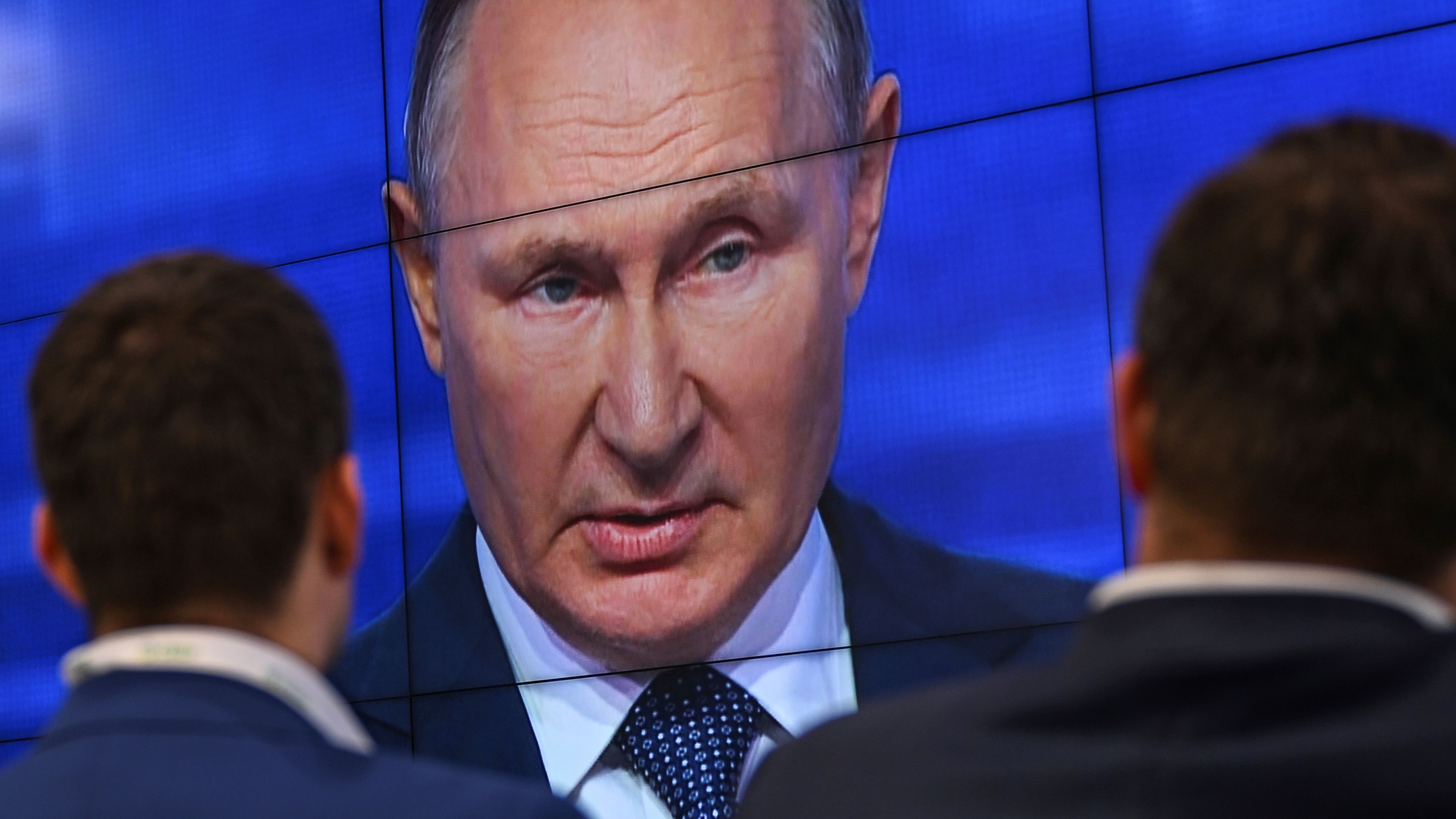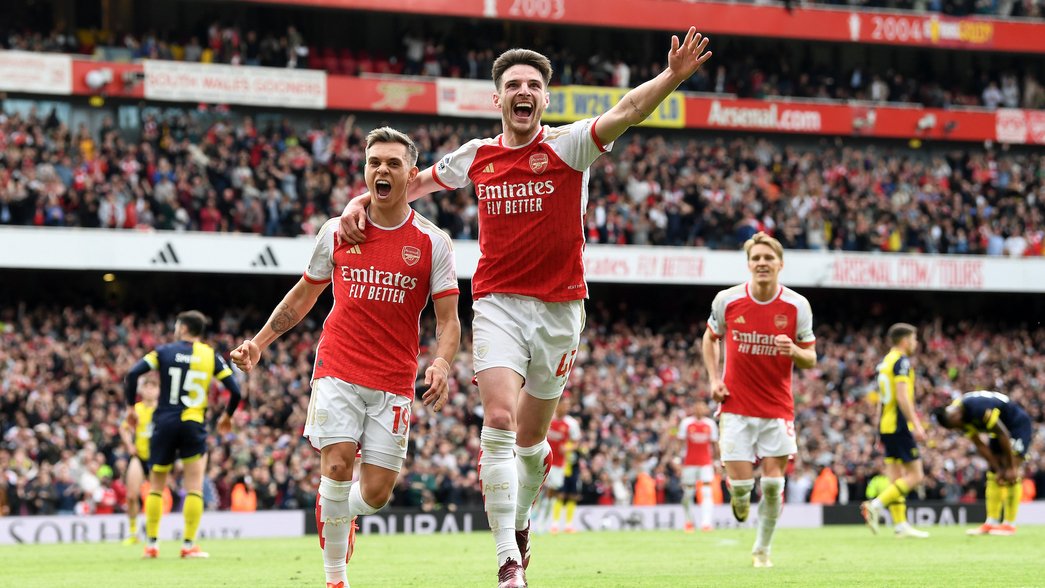Trump's Russia Sanctions: A Deteriorating Relationship With Putin

Table of Contents
The Context of Trump's Russia Sanctions
Understanding the context of Trump's Russia sanctions requires examining the historical trajectory of US-Russia relations. Decades of fluctuating cooperation and conflict, punctuated by periods of détente and Cold War tensions, laid the groundwork for the strained relationship that existed when Trump assumed office. Previous sanctions, imposed in response to Russian actions such as the invasion of Georgia in 2008, had already established a framework for punitive measures. However, the annexation of Crimea in 2014 and the ongoing conflict in eastern Ukraine marked a significant escalation, prompting further international condemnation and sanctions.
The political climate surrounding Russia's actions in Crimea and Ukraine was highly charged. Allegations of Russian interference in the 2016 US election further exacerbated the already tense situation, adding a layer of mistrust and suspicion to the relationship.
- Escalation of tensions after the annexation of Crimea in 2014: This event triggered widespread international condemnation and sanctions from various countries, including the US.
- Existing sanctions imposed by the Obama administration: These sanctions targeted specific Russian individuals and entities, aiming to pressure Russia to de-escalate the conflict in Ukraine.
- Allegations of Russian interference in the 2016 US election: This fueled accusations of Russian meddling in American democracy, further complicating the relationship and shaping the narrative around Trump's Russia policy.
Trump's Ambivalent Stance on Russia Sanctions
Trump's approach to Russia sanctions was marked by a notable ambivalence. While his administration continued to enforce existing sanctions, his public statements and actions often suggested a reluctance to fully utilize this tool of foreign policy. This inconsistency fueled criticism from within his own party and the intelligence community.
- Public expressions of admiration for Putin: Trump's frequent praise for Putin, even amid accusations of Russian aggression, raised concerns about his commitment to confronting Russian actions.
- Hesitation to fully enforce or expand existing sanctions: Reports emerged of internal disagreements within the Trump administration regarding the appropriate response to Russia's actions, leading to delays and reluctance in implementing or expanding sanctions.
- Criticism from within the Republican party and the intelligence community: Many within the Republican party and the intelligence community criticized Trump's perceived leniency towards Russia and his hesitation to fully utilize sanctions as a tool for leverage.
- Congressional efforts to strengthen sanctions against Russia: Facing criticism, Congress passed legislation aimed at strengthening sanctions against Russia, often overriding Trump's perceived reluctance.
The Impact of Sanctions on US-Russia Relations
The Trump Russia sanctions, coupled with his overall ambivalent stance towards Russia, had a profound impact on US-Russia relations. The already strained relationship deteriorated further, marked by a decline in diplomatic engagement and increased military activity.
- Deterioration of diplomatic ties between the US and Russia: Open communication and trust plummeted, hampered by mutual accusations and mistrust.
- Increased military activity and tensions: The sanctions did little to de-escalate tensions, with military activity and posturing increasing in several regions.
- Impact on trade and economic relations: Sanctions significantly impacted trade and economic ties between the US and Russia, disrupting existing partnerships and investments.
- Shifting alliances and geopolitical realignments: The strained relationship between the US and Russia forced other nations to reconsider their alliances and partnerships, leading to subtle geopolitical shifts.
The Mueller Investigation and its Influence
The Mueller investigation, launched to examine Russian interference in the 2016 US election, played a critical role in shaping the narrative surrounding Trump and Russia. The investigation's findings, while not resulting in charges of collusion, highlighted multiple contacts between the Trump campaign and Russian officials, fueling public skepticism about the President's relationship with Putin and the effectiveness of Trump's Russia sanctions.
Long-Term Effects of Trump's Russia Policy
Trump's approach to Russia and sanctions has left a lasting impact on US foreign policy and the US-Russia relationship. The lingering distrust and lack of open communication continue to shape geopolitical dynamics.
- Lingering distrust between the two countries: The events of the Trump presidency have deepened existing suspicions and mistrust between the two nations, making future cooperation challenging.
- The impact on international norms and alliances: Trump's approach challenged existing international norms and alliances, particularly regarding sanctions and responses to state-sponsored aggression.
- Continued debate about US policy towards Russia: The legacy of Trump's Russia policy continues to fuel debate and discussion within the US foreign policy community, shaping future policy directions.
Conclusion
The complexities of Trump's Russia sanctions highlight the fluctuating nature of the US-Russia relationship under his presidency. His ambivalent approach, characterized by public expressions of admiration for Putin alongside the enforcement of existing sanctions, had significant consequences for the bilateral relationship. This resulted in a deterioration of diplomatic ties, increased military tensions, and lasting impacts on global geopolitical stability. Understanding the intricacies of Trump Russia Sanctions is crucial for comprehending the current state of US-Russia relations. Further research into this critical aspect of foreign policy is encouraged to foster informed discussion and analysis of this evolving situation. Continue learning about the implications of Trump's Russia policies and their enduring impact on international relations.

Featured Posts
-
 Top Produit Smartphone Samsung Galaxy S25 256 Go Avis Complet
May 28, 2025
Top Produit Smartphone Samsung Galaxy S25 256 Go Avis Complet
May 28, 2025 -
 Broadheads Strike Earns Ipswich Vital Win Against Bournemouth
May 28, 2025
Broadheads Strike Earns Ipswich Vital Win Against Bournemouth
May 28, 2025 -
 Mlb Opener Arraez Carpenter Phillies And Mets Battle For Victory
May 28, 2025
Mlb Opener Arraez Carpenter Phillies And Mets Battle For Victory
May 28, 2025 -
 Murics Surgery And The Ipswich Town Squads Future
May 28, 2025
Murics Surgery And The Ipswich Town Squads Future
May 28, 2025 -
 Regresa Jack Sparrow La Reunion Entre Depp Y El Productor De Piratas Del Caribe Alimenta Los Rumores
May 28, 2025
Regresa Jack Sparrow La Reunion Entre Depp Y El Productor De Piratas Del Caribe Alimenta Los Rumores
May 28, 2025
